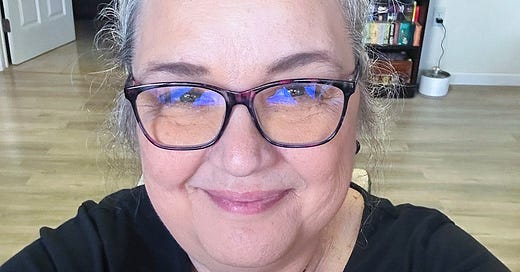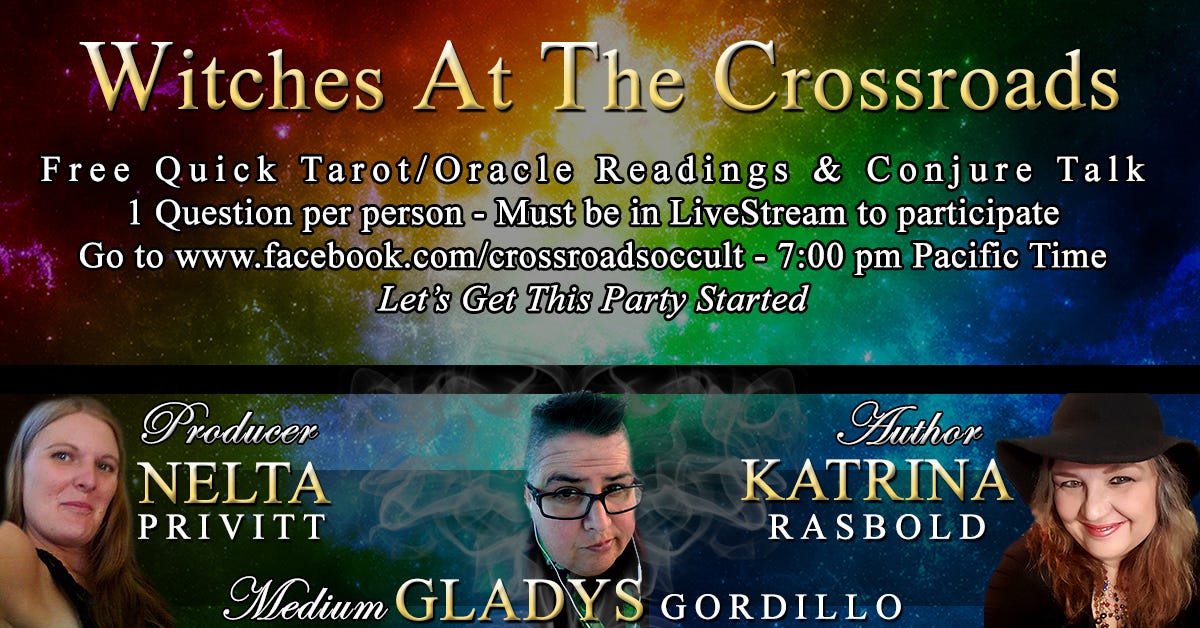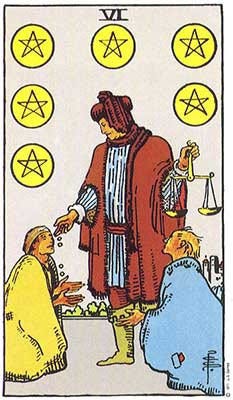Hello Everyone!!
Eric and I hope your year is going well. We are happily nestled into our mountain refuge, enjoying the sun when it is here and the rain when it comes. I say “we” are nestled. “I” am nestled and Eric is out daily going to yoga classes, the gym, sending out mail orders, and acting as our ambassador to the world while I hermit. In short, both of us living our best lives. ;)
Dahlia Rose and I had a great conversation on living with toxic people on today’s Crossroads of Cognizance. This was episode 103 for us, broadcasting every Thursday. We are now shifting the broadcast from weekly to every other week to accommodate some schedule needs.
March 7th is our “first Thursday” and Nelta, Gladys, and I plan to be back with Witches At The Crossroads to provide free quick readings. Watch for updates on this broadcast on our Facebook page: www.facebook.com/crossroadsoccult.
A theme in my life recently is a tough one: boundaries. I have struggled with this for a long time, especially since for most of my life, I based my value in the world on what I could do for others, not who I was as a person. I cultivated those kinds of relationships in my life for decades. Even though I got healthier, those relationships continued where people around me expected me to give to them as they needed with nothing coming back to me in return.
For Imbolc this year, the goal list I submitted to the Universe for approval was for a healthy body, healthy marriage, and healthy relationships. The “healthy relationships” part seems to be already under heavy construction.
It’s quite a question to figure out what to do with those relationships when intellectually, you know it’s not likely that the dynamic will change, but you have affection for the other person involved and don’t want to erase them from your life.
Do you just keep giving forever with no thought of a balanced relationship or do you keep the relationship, but refuse to give as you did before? Do you simply work hard to mitigate any feelings of resentment that comes up? Do you give because you can even if you really no longer want to continue that dynamic? Because you care about the person and you know they depend on you?
It is interesting how when you begin to attract healthy, balanced relationships to you, the existing relationships that involve toxic imbalance become more glaringly apparent. The cost is more because you have something to compare it to. You have relationships where you walk away feeling happy, supported, and fulfilled. This can make those relationships where you walk away feeling depleted, used, and unseen almost unbearable.
One of my mentors once told me that if you have a 50/50 relationship with your spouse, you’ve failed. It is a deadlock. No one is winning. Instead, you strive for a relationship that is 60/60, where everyone goes the extra mile in some way and both people in the equation feels like they won the lottery. Each person feels like they got the better end of the deal.
Those are the relationships we need, not just in our romantic partnerships, but in our family and friendship connections as well. It is good for all of us to perform regular self-audits to make sure that we feel confident we are giving into as much as we are getting back from in our close relationships. I do not think we need to obsess over it or nickel and dime every relationship to death, keeping meticulous balance sheets on everyone. We simply need to be mindful of how people respond to us and how we feel when we are around them. This will usually give us all the information we need.
It is not about the numbers on the energy ledger, so to speak, but about the feelings generated by balance or imbalance.
Boundaries, of course, are not always about who gives what into a relationship. Who feeds whom? Who takes and who gives?
They can also be about issues of agency and points of healthy communication, especially as new relationships coalesce into their stable form. Sometimes, it looks like letting a person know about your neurodivergent tendencies or triggers. “I have abandonment issues, so it helps me if can remind me from time to time that you still want me to be in your life.” The opposite could also be true, “I get easily overwhelmed and sometimes need to hermit for days or weeks at a time. It’s not you, it’s me.” If the people saying those things try to form a friendship, they will need to negotiate some boundaries to have a healthy connection. It is possible even that the relationship is not a good fit and that is part of what they must discover with open and authentic communication.
This speaks to the common problem of people who are uncomfortable voicing their needs to others. Some people are oblivious to their own needs because they feel selfish or unseemly even thinking about what they need in their relationships. This can be because they feel unworthy of consideration or because they want to be the “strong” one who is low-maintenance and easy-going.
Dahlia and I speak a good bit on the idea that setting a boundary is an act of love. Many see it as aggression or control, as if someone is asserting their dominance over the behavior of the other person. Instead, they are saying, “I care enough about you and this relationship to let you know what I need for it to continue.”
When someone sets a boundary with us, it can send us into a spiral of self-degradation with the idea that we did things wrong, that we hurt someone, that we created drama or misdeeds that they must address.
If boundary setting gets done correctly, it becomes an act of love and understanding on both sides. We cannot be expected to know what someone else needs from us, no matter how relatable they seem. Even social contracts such as “common decency” may circumnavigate conditioned or individual needs that might fall outside of those understood behaviors.
As important as it is to hear and fully understand a boundary someone sets with us, it is equally important that we honestly consider our ability to honor that boundary. “I can promise I will try,” is reasonable, but not very reassuring for most boundary setters. “I hear you and I understand why you need that,” is good. “I don’t completely understand, but I see it is important to you and I value having you in my life,” is also a good response.
In any case, we can thank the person for caring enough to tell us what they need from us to continue the relationship. We can also be honest with ourselves if we doubt our ability to honor the set boundary.
A good example of this is the current pushback on people sharing preferred pronouns. If well-presented, this is not a request, but a boundary. “My preferred pronouns are ____. I feel seen and honored if you use those pronouns when you refer to me.”
Some people will say, “Thank you for letting me know” and will begin self-correcting. Others will acknowledge the boundary and make a half-assed attempt to use the correct pronouns. Still others will say, “I am not going to change how I talk because you want a different pronoun” and make no effort at all.
If you know going in that you have no intention of honoring the boundary, the kindest thing is to let that person know so they can make important decisions about where you land in their life. If you are too embarrassed to admit that you have no intention of honoring the boundary, then that is a whole other issue you need to address within yourself.
Are you ready to set some boundaries?
Ha, probably not. If you are anything like me, that question would be met with something like, “Ugh.”
My suggestion if you want to adjust relationship in your life to bring them into greater balance is to journal and journal and journal. Write out what feels “off” in the relationship, what you want, and what the other person can do to bring things into balance.
Consider how valuable that person is or is not in your life. If whatever behavior creates the imbalance goes away, what is left? How long is the grocery list of behaviors that need to shift? How much is baby and how much is bath water?
Sometimes, the answer is not to set a boundary. Lord knows you’re not obligated to do so with anyone. There are plenty of relationships in this world that simply need to not continue. It does not (always) mean that either person in the relationship is a bad person. It just might not be a good fit and that’s the beginning and end of it.
If the relationship genuinely does have a toxic or worse, abusive, component, the answer may be an impenetrable boundary or even a legal one, like a restraining order. If the situation is, well, softer, a boundary can be flexible, one that adapts as each person grows and evolves. The relationship also will grow and evolve and a flexible boundary accommodates that development.
A flexible boundary also allows for the integration of other people into the process. They then become part of the evaluation. An example of this is the influence of other partners, parents, siblings, or friends on a relationship. If you love your best friend and they marry someone you cannot tolerate, that will influence the relationship with your best friend whether you wish it to or not.
A flexible boundary also accommodates mental health shifts in both parties. If you do not have the fortitude for a friend who drains your energy, you might have an arrangement that you will reach out when you feel fortified and have abundant energy but might distance from the relationship if you feel compromised and need time to recover before engaging your friend who needs more intensive energy from you.
Managing relationships is hard, especially if we care where our energy goes. Resentment is one of the harshest contaminants of any relationship and setting good boundaries helps keeps them at bay and allows everyone involved to know where they stand.
I wish you healthy, rewarding, loving, and above all, balanced, relationships.
Need to find me? You can find All Things Katrina at: www.katrinarasbold.com











